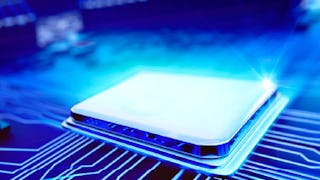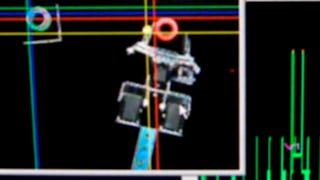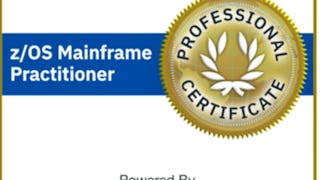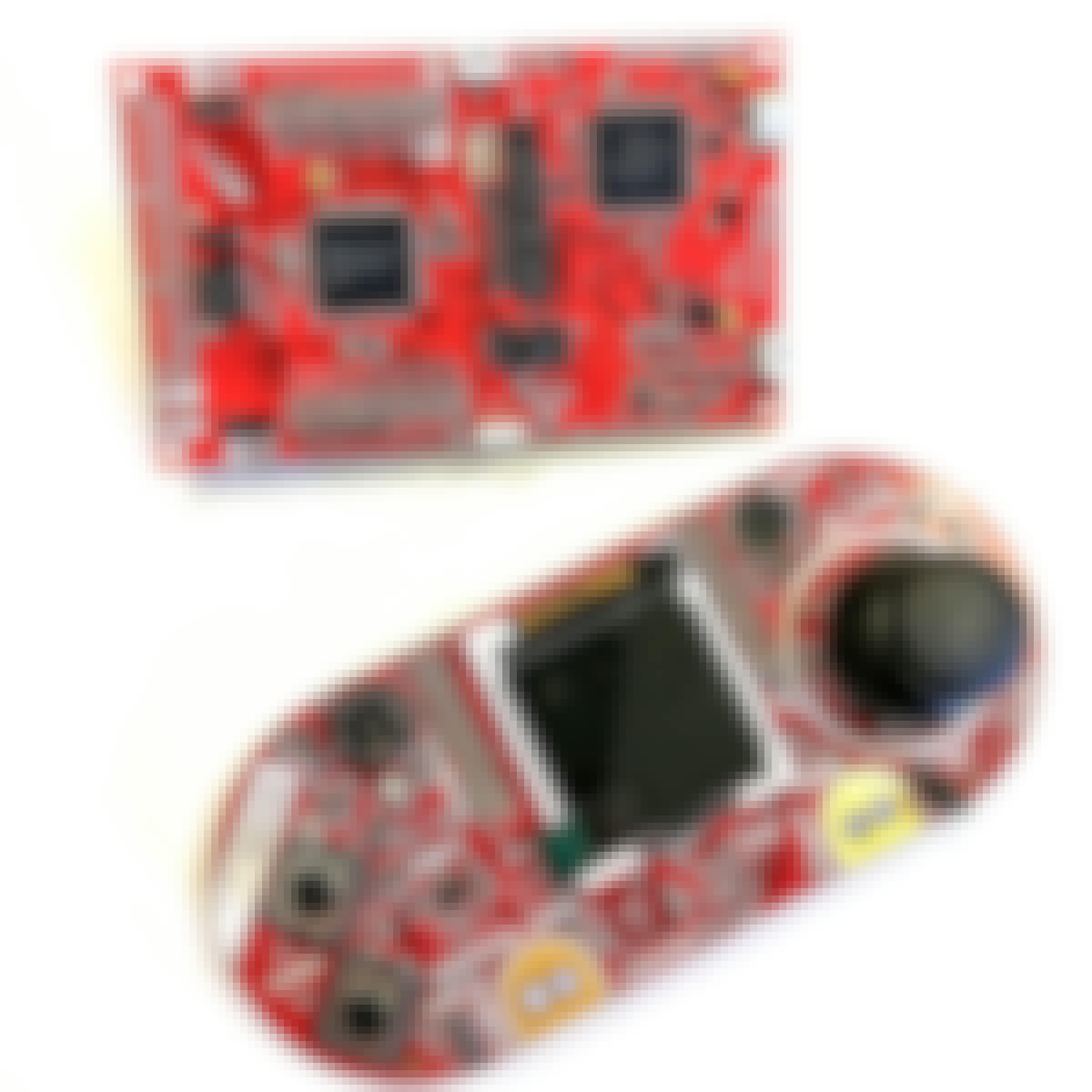System Programming
Filter by
SubjectRequired *
LanguageRequired *
The language used throughout the course, in both instruction and assessments.
Learning ProductRequired *
LevelRequired *
DurationRequired *
SubtitlesRequired *
EducatorRequired *
Results for "system programming"
 Status: Free TrialFree TrialU
Status: Free TrialFree TrialUUniversity of California, Irvine
Skills you'll gain: Go (Programming Language), Object Oriented Programming (OOP), Algorithms, JSON, Programming Principles, OS Process Management, Functional Design, Data Structures, System Programming, Development Environment, Software Design, Remote Access Systems, Operating Systems, File Management, Program Development, Software Development Tools, Debugging, Computer Architecture
4.6·Rating, 4.6 out of 5 stars3K reviewsIntermediate · Specialization · 3 - 6 Months
 Status: Free TrialFree Trial
Status: Free TrialFree TrialSkills you'll gain: Embedded Software, Performance Tuning, System Programming, Software Development Tools, Embedded Systems, Microarchitecture, Software Development, Development Environment, Hardware Architecture, Debugging, Application Security, Secure Coding, Computer Architecture, C (Programming Language), System Configuration, Application Development, C++ (Programming Language), System Requirements, Product Support
4.6·Rating, 4.6 out of 5 stars197 reviewsIntermediate · Specialization · 3 - 6 Months
 Status: Free TrialFree TrialU
Status: Free TrialFree TrialUUniversity of Colorado Boulder
Skills you'll gain: Real-Time Operating Systems, Embedded Systems, Electronic Hardware, Software Systems, Performance Tuning, Embedded Software, Systems Architecture, Hardware Architecture, System Software, Software Architecture, Verification And Validation, Debugging, Software Design, System Design and Implementation, Linux, System Programming, Software Technical Review, Systems Engineering, Systems Design, Real Time Data
Build toward a degree
3.9·Rating, 3.9 out of 5 stars109 reviewsIntermediate · Specialization · 3 - 6 Months
 Status: Free TrialFree Trial
Status: Free TrialFree TrialSkills you'll gain: Job Control Language (JCL), Mainframe Computing, z/OS, Virtualization, Unix, IBM DB2, IBM Cloud, Data Management, Virtual Machines, Database Management Systems, Hardware Architecture, Data Storage, Operating System Administration, Infrastructure Architecture, System Programming, Operating Systems, Unix Commands, Linux, Control Panels, Command-Line Interface
4.7·Rating, 4.7 out of 5 stars1.3K reviewsIntermediate · Professional Certificate · 1 - 3 Months
 Status: NewNewP
Status: NewNewPPearson
Skills you'll gain: C and C++, C++ (Programming Language), Object Oriented Programming (OOP), System Programming, Software Design Patterns
Intermediate · Course · 1 - 4 Weeks
 Status: Free TrialFree Trial
Status: Free TrialFree TrialSkills you'll gain: C++ (Programming Language), Object Oriented Programming (OOP), Computer Programming, Microsoft Visual Studio, System Programming, Programming Principles, Apple Xcode, Software Installation, Development Environment, Algorithms, File Systems, Software Design Patterns, Data Structures, Performance Tuning, Debugging, File Management
4.5·Rating, 4.5 out of 5 stars14 reviewsIntermediate · Specialization · 3 - 6 Months
 Status: NewNewStatus: Free TrialFree TrialP
Status: NewNewStatus: Free TrialFree TrialPPearson
Skills you'll gain: System Programming, Rust (Programming Language), Data Structures, Relational Databases, Other Programming Languages, Databases, Data Access, Debugging, Programming Principles, Application Development, Secure Coding, SQL, Object Oriented Programming (OOP), C++ (Programming Language), Maintainability, Interoperability, Software Development, Command-Line Interface, Data Import/Export, File Management
3.6·Rating, 3.6 out of 5 stars6 reviewsBeginner · Specialization · 1 - 3 Months
 Status: NewNewStatus: Free TrialFree TrialP
Status: NewNewStatus: Free TrialFree TrialPPackt
Skills you'll gain: Rust (Programming Language), System Programming, Package and Software Management, Data Structures, Software Installation, Programming Principles, Secure Coding, Debugging, Software Design Patterns, Integrated Development Environments, Data Sharing, Data Management, Command-Line Interface, Capacity Management
Beginner · Specialization · 3 - 6 Months
 Status: Free TrialFree TrialR
Status: Free TrialFree TrialRRice University
Skills you'll gain: Apache Kafka, Apache Spark, Apache Hadoop, Distributed Computing, Dataflow, Java Programming, Java, Middleware, Scala Programming, Data Structures, System Programming, Programming Principles, Servers, Application Frameworks, Debugging, Algorithms, Performance Tuning, Network Protocols, Computer Science
4.6·Rating, 4.6 out of 5 stars1.6K reviewsIntermediate · Specialization · 3 - 6 Months
 Status: Free TrialFree TrialT
Status: Free TrialFree TrialTThe State University of New York
Skills you'll gain: Digital Assets, Blockchain, Market Liquidity, FinTech, Financial Market, Cryptography, Cryptographic Protocols, Financial Systems, Payment Systems, Distributed Computing, Governance, Key Management, Identity and Access Management, Financial Trading, Financial Regulation, Asset Management, Web Applications, Transaction Processing, Financial Services, System Programming
3.8·Rating, 3.8 out of 5 stars10 reviewsBeginner · Specialization · 1 - 3 Months
 Status: Free TrialFree TrialE
Status: Free TrialFree TrialEEIT Digital
Skills you'll gain: Real-Time Operating Systems, Embedded Software, Embedded Systems, Internet Of Things, Cryptography, Operating Systems, Network Architecture, Network Security, Cybersecurity, Web Services, Encryption, Network Protocols, Public Key Cryptography Standards (PKCS), Wireless Networks, Threat Modeling, System Programming, Computer Programming, Software Engineering, C (Programming Language), Real Time Data
4.3·Rating, 4.3 out of 5 stars1.2K reviewsIntermediate · Specialization · 3 - 6 Months
 U
UUniversity of Colorado Boulder
Skills you'll gain: Embedded Software, Embedded Systems, Debugging, Data Structures, System Programming, Microarchitecture, C (Programming Language), Hardware Architecture, Computer Architecture, Integrated Development Environments, Software Design, Maintainability, System Configuration, Development Environment, Peripheral Devices
4.5·Rating, 4.5 out of 5 stars526 reviewsIntermediate · Course · 1 - 4 Weeks